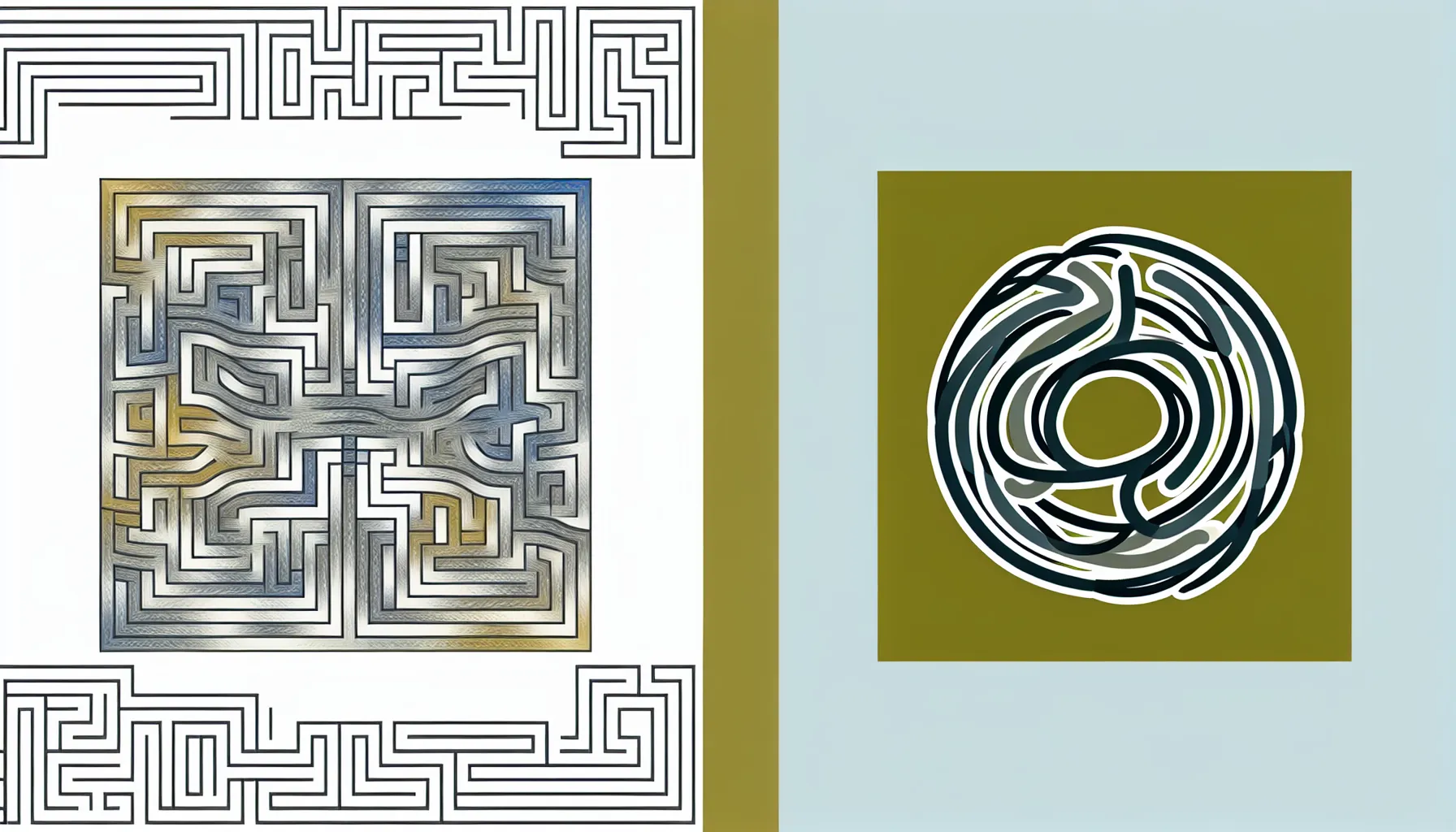The Role of Past Experiences in Trust Issues
When the tapestry of our lives is marred by the indelible stains of past traumas and disappointments, the threads of trust can become tattered and worn. The journey of trust in relationships often meanders through the shadows of yesteryear, where the echoes of betrayal or neglect whisper doubts into the present. It’s a poignant reality that our formative experiences, particularly those carved out in the tender years of childhood, can etch deep grooves of skepticism into the canvas of our hearts.
Professor Craig Cashwell, an expert in the realm of Counselor Education, casts light on this intricate dynamic, revealing that trauma, especially betrayals as piercing as nonconsensual nonmonogamy, can trigger a maelstrom of emotional turmoil akin to acute stress disorder or even post-traumatic stress disorder. In close relationships, where we reveal our deepest selves, trust issues can come up. This makes people feel vulnerable, worried that the foundation of their connection is as delicate as a spider’s web.
However, in this uncertain situation, there is hope. If we change the way we think about our past, we can learn from our wounds and create a new story. This story won’t see us as forever controlled by our history but as creators of our future. Letting go of old grudges, forgiving, and embracing mindfulness and therapy can lead us toward healing. Trust, then, is not an artifact to be unearthed from the ruins of our past but a bastion to be built, stone by stone, with the mortar of self-awareness, communication, and intentional vulnerability.
Our past is a ghostly hand that guides our present, shaping our trust in ways invisible and profound. To trust again is to convince the heart that patterns of the past need not dictate the dance of the future.
The Importance of Trust
Trust is not merely a quality we hope to find in our partners but a sacred pact we forge together—a promise to uphold honesty, to champion openness, and to honor our emotional bond with the utmost care. Indeed, trust in romantic relationships is the cornerstone that bears the weight of our shared dreams and aspirations. It is what allows partners to navigate the ebb and flow of life’s trials and tribulations with a sense of security, knowing that their sanctuary of togetherness is guarded by the twin sentinels of reliability and consistency. Through trust, the doors to our inner worlds swing wide open, inviting our significant others to witness the tapestry of our true selves, unmarred by facades or defenses.
Yet, without this foundational pillar, the architecture of romance crumbles into dust. Without trust, problems arise in a relationship. Doubts can cloud the once-clear skies, making the warmth of closeness turn into the coldness of distance. To go from this lack of trust to a strong connection, we need to be open and engaged with our partners—reachable, responsive, and fully there. Trust is like a magical process in love that turns ordinary moments into something extraordinary, letting us appreciate the beauty of being truly understood.
- Trouble with emotions: Distrust brings a mix of bad feelings like resentment, anxiety, and jealousy that can harm the love in a relationship.
- Breakdown in communication: When trust is missing, talking becomes difficult, leading to misunderstandings and arguments.
- Intimacy erosion: Intimacy, both emotional and physical, withers in the shadow of suspicion, leaving partners feeling disconnected and alone.
- Self-esteem depletion: Trust issues can metastasize into self-doubt, as individuals question their worthiness of love and fidelity.
- Future skepticism: A deficit of trust can color future relationships with the grey hue of cynicism, making it challenging to give and receive affection freely.
Building and Regaining Trust
Even the most meticulously cultivated trust can face the tempest of betrayal. In such instances, restoring trust is not a mere act of patching up old wounds—it is a rebirth, demanding a metamorphosis of the relationship. Honesty becomes the first step toward healing, where acknowledging the hurt caused is critical. Following this, accountability and a commitment to change showcase a genuine desire to mend the fractured bond. Couples may find solace in the delicate dance of forgiveness, where letting go of grudges paves the way for rebuilding bridges of connection.
Mending trust is not an overnight endeavor; it is a journey marked by small, deliberate steps. Establishing new rituals of connection and investing in quality time can rekindle the embers of a relationship in repose. Inviting professional guidance through therapy can also offer a sanctuary for couples to navigate their emotional landscapes with a compassionate compass. In essence, trust—both in its creation and its restoration—is a testament to the resilience of the human spirit, ever capable of weaving golden threads of hope into the tapestry of love.

Trust Challenges in Long-Distance Relationships
In the vast expanse between two hearts, separated by geography, trust faces its sternest test. The absence of physical proximity in long-distance relationships often amplifies insecurities, turning whispers of doubt into roars. Yet, it is precisely within this space that trust can be meticulously sculpted, striking a balance between independence and intimacy.
To fortify trust across miles, open and frequent communication is the linchpin. It’s not the quantity of exchanges but the quality that cements trust. Video calls, where partners can gaze into each other’s eyes, become not just windows to the soul but gateways to reassurance. Transparency about one’s social circle and activities, coupled with the sharing of future plans, builds a narrative of inclusion, bridging the physical divide.
Moreover, setting mutual goals and planning visits can create a shared trajectory, fostering a sense of unity. Trust in long-distance love is a leap of faith, supported by the parachute of mutual respect and understanding. It’s the conscious effort to remain emotionally attuned, despite the miles, that kindles the flame of trust, ensuring that the heart feels close even when it’s far.

Identifying and Overcoming Trust Issues
Identifying trust issues is akin to sensing the subtle change in the air before a storm—it requires mindfulness and an acknowledgment of the patterns that disrupt the calm. Trust issues may surface as a reluctance to share one’s thoughts, a tendency to question a partner’s motives, or an overarching fear of vulnerability. They are the shadows cast by the flickering flame of uncertainty, where the fear of potential heartache looms larger than the desire for closeness.
Once recognized, the path to overcoming trust issues begins with an introspective quest. Self-reflection is crucial; one must traverse the inner landscape to understand the origins of their hesitations. Are these feelings reminders of past betrayals, or maybe signs of deep fears? Fixing these problems is something both partners need to work on together. It’s important to have a space where open and honest talks are encouraged.
Talking about concerns and wishes without blaming each other helps. Setting clear boundaries and agreeing on what’s expected can be a guide to rebuilding trust. Also, getting advice from a relationship therapist can bring in new ideas and strategies that fit the couple’s situation.
Fixing trust issues doesn’t happen in a straight line—it goes up and down with life’s ups and downs. But if partners are committed and understanding, they can find a way through tough times and make their relationship strong again.
From Tangle to Understanding: This picture represents the journey from a confusing mess of distrust to a beautiful pattern of regained faith. It reflects the process of dealing with and overcoming trust issues in relationships

FAQ
-
Yes, it is possible once two partners want to heal and grow. Be sincere, patient, and eager to restore trust and create a more meaningful bond.
-
Therapy offers a sanctuary for couples, providing expert guidance to navigate the labyrinth of trust issues. It facilitates deeper understanding and equips partners with effective tools for communication and healing.










